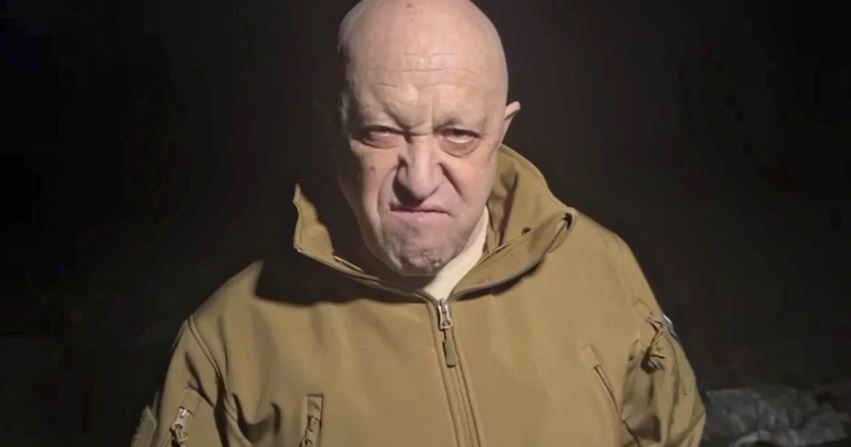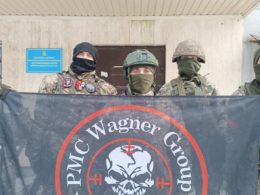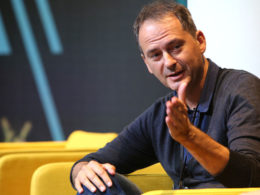Vladimir Putin is unlikely to fire Russian Chief of General Staff Gerasimov as Prigozhin demanded and confirms he met with Wagner financier Prigozhin following his rebellion.
Vladimir Putin’s meeting with Wagner PMC head Yevgeny Prigozhin on 29 June (and/or 1 July), which was reported by the Kremlin itself and Kremlin and Western intelligence officials, is likely an effort to “portray the rebellion, its potential fallout, and the calls to replace disdained MoD establishment figures as a settled affair,” the Institute for Study of War writes in its daily update.
On the same day that the Kremlin acknowledged the meeting with Prigozhin, 10 July 2023, it published footage of Russian Chief of General Staff Gerasimov receiving reports on alleged Ukrainian attempts to strike Russian military targets in occupied Crimea and Rostov and Kaluga oblasts, likely indicating he will likely retain his position in the Russian military.
The appearance comes amidst rumors about Gerasimov’s absence and speculations about his role being assumed by another officer. Prigozhin demanded the removal of Russia’s top military leadership, Chief of General Staff Gerasiov and Minister of Defense Sergei Shoigu, during Wagner’s rebellion on 24 June 2023, and it was up till now unclear whether the Kremlin would give in.
“Acquiescence to Prigozhin’s demands to remove Shoigu and Gerasimov would have likely damaged Putin’s regime security by creating a precedent that resistance and outright rebellion are legitimate means to achieve desired goals,” the ISW notes.
During the three-hour meeting between Putin Prigozhin and all of the Wagner commanders in the Kremlin, Putin gave an assessment of Wagner’s actions during the “special military operation,” gave his assessment of the armed rebellion, and listened to commanders’ explanations, Putin’s press secretary Peskov informed.
This is inconsistent with Peskov's 29 June statement that he had no information about Prigozhin's whereabouts. It also portrays an inconsistent narrative between Putin's recent engagement with Prigozhin and previous Kremlin rhetoric, which aimed to downplay Prigozhin's role within the Wagner private military company. Putin's meeting with Prigozhin and the subsequent acknowledgment of it seems to contradict Putin's earlier condemnation of the rebellion's organizers. A Kremlin-affiliated war correspondent, however, characterized the meeting as a careful attempt to replace Prigozhin and restructure the Wagner PMC, aligning with ISW's previous assessment.
Despite these attempts, the level of loyalty Wagner personnel has for Prigozhin and their willingness to sign contracts with the MoD remains unclear. ISW refers to an interview of a Wagner assault group commander who stated that no personnel in his unit have signed the contract with the MoD, showing allegiance to Prigozhin and a shared ideology of fighting for the motherland instead of a military contract, ISW says.




